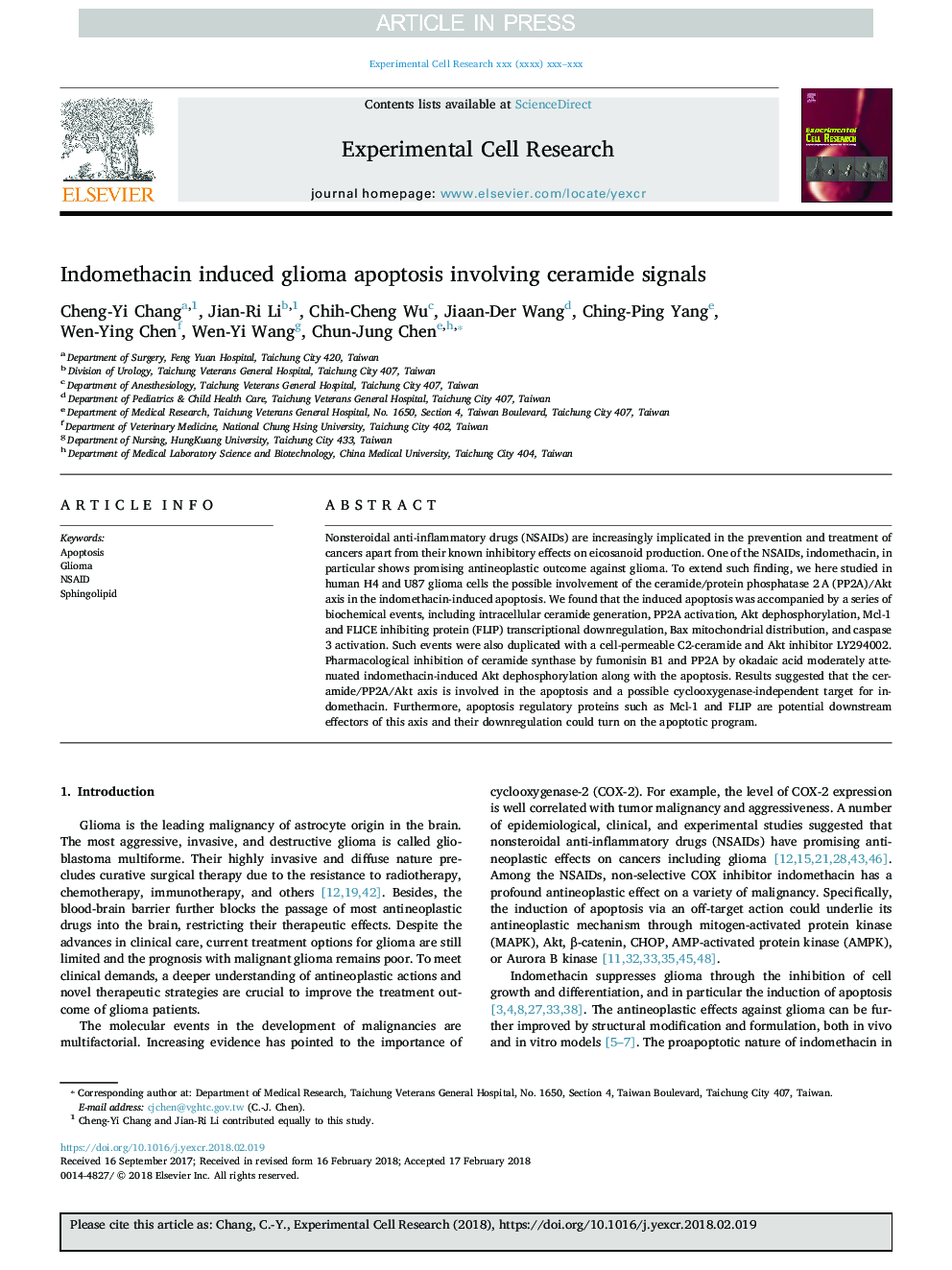| کد مقاله | کد نشریه | سال انتشار | مقاله انگلیسی | نسخه تمام متن |
|---|---|---|---|---|
| 8450979 | 1547691 | 2018 | 12 صفحه PDF | دانلود رایگان |
عنوان انگلیسی مقاله ISI
Indomethacin induced glioma apoptosis involving ceramide signals
ترجمه فارسی عنوان
اندومتاسین باعث آپوپتوز گلیوما شامل سیامین های سرامید شده است
دانلود مقاله + سفارش ترجمه
دانلود مقاله ISI انگلیسی
رایگان برای ایرانیان
موضوعات مرتبط
علوم زیستی و بیوفناوری
بیوشیمی، ژنتیک و زیست شناسی مولکولی
تحقیقات سرطان
چکیده انگلیسی
Nonsteroidal anti-inflammatory drugs (NSAIDs) are increasingly implicated in the prevention and treatment of cancers apart from their known inhibitory effects on eicosanoid production. One of the NSAIDs, indomethacin, in particular shows promising antineoplastic outcome against glioma. To extend such finding, we here studied in human H4 and U87 glioma cells the possible involvement of the ceramide/protein phosphatase 2â¯A (PP2A)/Akt axis in the indomethacin-induced apoptosis. We found that the induced apoptosis was accompanied by a series of biochemical events, including intracellular ceramide generation, PP2A activation, Akt dephosphorylation, Mcl-1 and FLICE inhibiting protein (FLIP) transcriptional downregulation, Bax mitochondrial distribution, and caspase 3 activation. Such events were also duplicated with a cell-permeable C2-ceramide and Akt inhibitor LY294002. Pharmacological inhibition of ceramide synthase by fumonisin B1 and PP2A by okadaic acid moderately attenuated indomethacin-induced Akt dephosphorylation along with the apoptosis. Results suggested that the ceramide/PP2A/Akt axis is involved in the apoptosis and a possible cyclooxygenase-independent target for indomethacin. Furthermore, apoptosis regulatory proteins such as Mcl-1 and FLIP are potential downstream effectors of this axis and their downregulation could turn on the apoptotic program.
ناشر
Database: Elsevier - ScienceDirect (ساینس دایرکت)
Journal: Experimental Cell Research - Volume 365, Issue 1, 1 April 2018, Pages 66-77
Journal: Experimental Cell Research - Volume 365, Issue 1, 1 April 2018, Pages 66-77
نویسندگان
Cheng-Yi Chang, Jian-Ri Li, Chih-Cheng Wu, Jiaan-Der Wang, Ching-Ping Yang, Wen-Ying Chen, Wen-Yi Wang, Chun-Jung Chen,
